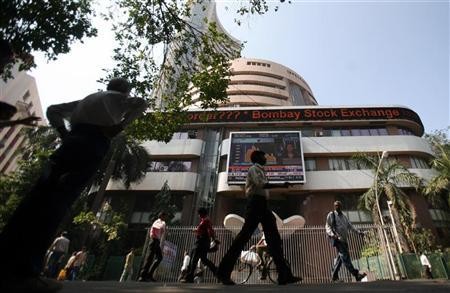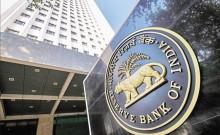
India's Sensex fell in the week with investor confidence weighed down by the global concerns, including the U.S. fiscal cliff and the domestic worries regarding weakening industrial output.
India's BSE Sensex was down 2 percent and closed at 18309.37. Investors continued to the focus on the U.S. where developments on the fiscal cliff are being closely watched closely and the uncertainty on the matter persisted to put pressure on market sentiment.
Investor sentiment was also weighed down by geopolitical tensions in the Middle East. Market confidence turned negative as violence intensified in the Middle East following the air strikes by Israel against Hamas in the Gaza Strip, raising concerns that there could be more attacks in the coming days.
Investors are also worried about the economic condition in the euro zone amid a delay in the European Central Bank's disbursement of the next tranche of bailout funds for Greece. Investors are waiting for the Eurogroup meeting of finance ministers in Brussels next week to make an agreement, which is expected to lead to the release of the funds, which are necessary to stabilize the ailing Greek economy.
India's wholesale price index rose at a slower rate in October than that in the previous month, showing signs of a gradual decline in price pressure to make room for monetary easing. According to the data released on Wednesday by the Ministry of Commerce and Industry, India's WPI, which measures the change in the price of goods sold by wholesalers, rose 7.45 percent in October, down from a 7.81 percent increase in September and below the analysts' expectation of 7.96 percent.
The decreasing headline inflation should be good news because it could help the government invigorate growth without much concern about the rising prices. Meanwhile, India's industrial output fell in September compared to that in the same month last year, indicating that the weak global demand was continuing to have its impact on the country's economy.
According to the data released Monday by the Ministry of Statistics and Program Implementation, India's industrial production, which measures the change in the total inflation-adjusted value of output produced by manufacturers, mines and utilities, declined 0.4 percent in September compared to that in the same month last year, down from a 2.3 percent rise in August and also below the analysts' expectation of a 2.8 percent increase.
India's economy is visibly under pressure with reports coming that the government might borrow an extra 250 billion rupees ($4.6 billion) in the second half of the fiscal year 2013 by selling the government securities or treasury bills. Earlier this month, Finance Minister P Chidambaram said that this year's growth in India would be only in the 5.5-6.0 percent range.
Investors are focusing on the winter session of the Parliament commencing on November 22, which is expected to take up amendment of the Insurance Bill to increase the cap on the foreign direct investment to 49 percent from 26 percent.
Major losers: Shares of Tata Motors declined 5.56 percent. Shares of Cipla Ltd dropped 3.41 percent and those of ICICI Bank fell 3.09 percent.

















